Tread quietly up the creaky staircase and don’t stop until you reach the roof, because it’s where the steps run out that you’ll find a workshop, tucked beneath the rafters, where classic cars made of precious metal are sculpted in miniature, often wearable, form. The space, compact and functional, belongs to goldsmith Wendy Roelofs, but its precise location will remain one of Amsterdam’s best kept secrets due to the precious nature of her work. Blow gently on any surface and the dust that’s formed out of silver shavings will swirl prettily into the air.
Lucky to be one of the trusted few invited to visit the canal house where Wendy’s studio is hidden, it feels as though I have tiptoed into an alchemist’s laboratory. Among the instruments laid out on her multi-level antique work bench (some of which belonged to its former owner, a fellow jeweller), there are tiny screws, pins and parts, as well as hammers, pliers, files and saws. There’s also a loupe attached to a pair of protective glasses; the key magnification aid that allows her to see millimetre-minute details such as steering wheels, grilles and headlights more closely, but it’s the contents of a glass jar in plain sight that catches my magpie eye. They are fragments of old bullion awaiting their transformation into something new, evidence of her pledge to make only in recycled metals, and she is quick to quell a fanciful rumour about metalworkers that emerged in the Middle Ages.
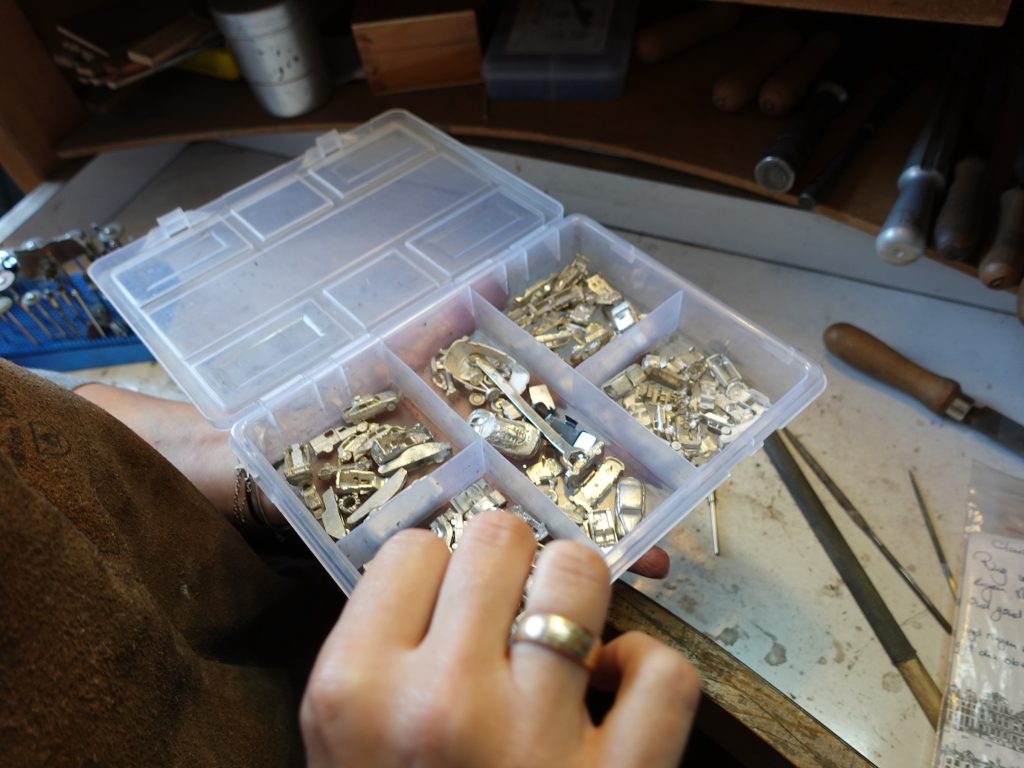
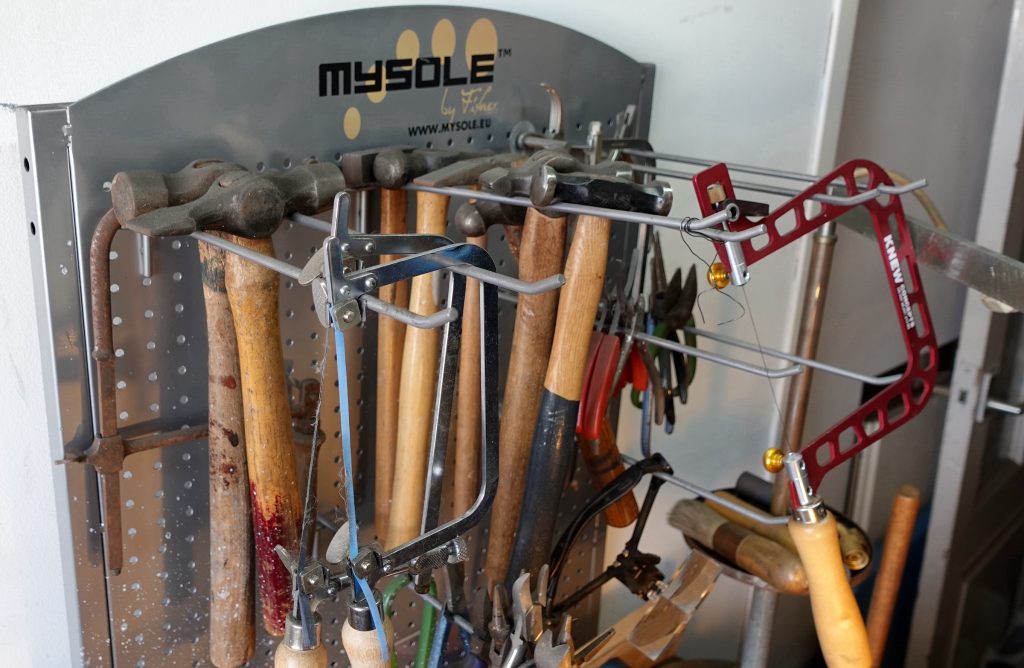
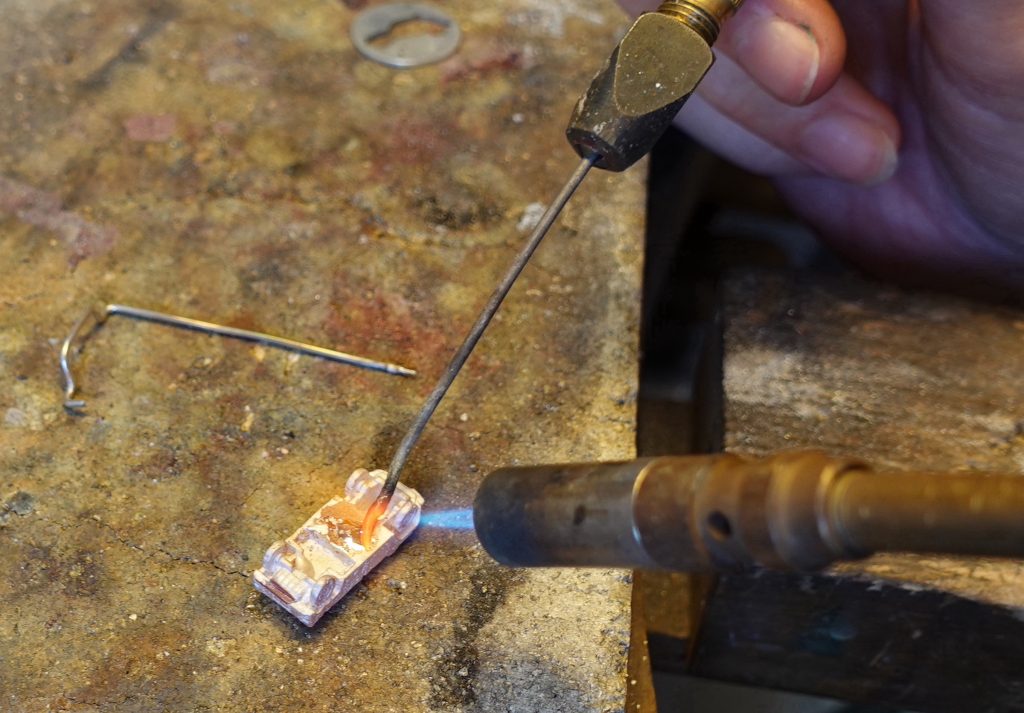
“In the old days jewellers, who sell the jewellery, and goldsmiths, who make the jewellery, were revered because of the myth that we were able to turn lead into gold, but unfortunately for me, that is not the case,” she says, mid-flow, in what appears to be an act of sorcery. “Yes, the silver has gone cherry red,” Wendy confirms, as she prepares to combine the 1:160 scale chassis of a Morris Minor to a mechanism which will turn it into one half of a pair of cufflinks. By annealing the silver (heating it in the flame of a gas-fuelled soldering torch until it takes on a pinkish hue) it becomes “more workable” explains Wendy, who uses chemical agent, or “borax”, known as a flux in metallurgy, to aid this part of the process. Once rosy, the silver parts are relaxed enough to be fused together using molten silver solder. It’s fascinating to watch, but before a final buff and polish, the piece is plopped in a specially formulated pot of pickle that will rinse off excess flux, oxidation and firescale. I’m enthralled.
At 13, Wendy knew goldsmithing was what she wanted to do. “I’d read a Dutch romance novel about a young girl who took over her father’s jewellery business when he died,” she recalls. “Of course, it was full of struggle and hardship, and of course a man came along to save her, but the thing that struck me was her knowledge. The one thing people can’t steal from me is what’s inside my head.” Specialising in the appraisal of antique jewellery, Wendy’s career brought her to Amsterdam more than two decades ago, but disenchanted by the lack of freedom and creativity that working for a large auction house allowed, she went freelance in 2016 and discovered her niche in crafting classic car trinkets. Her first piece, a “tiny, very simple necklace” she made as a tribute to her Citroën 2CV “Guv”, represented a culmination of all the things she loves.
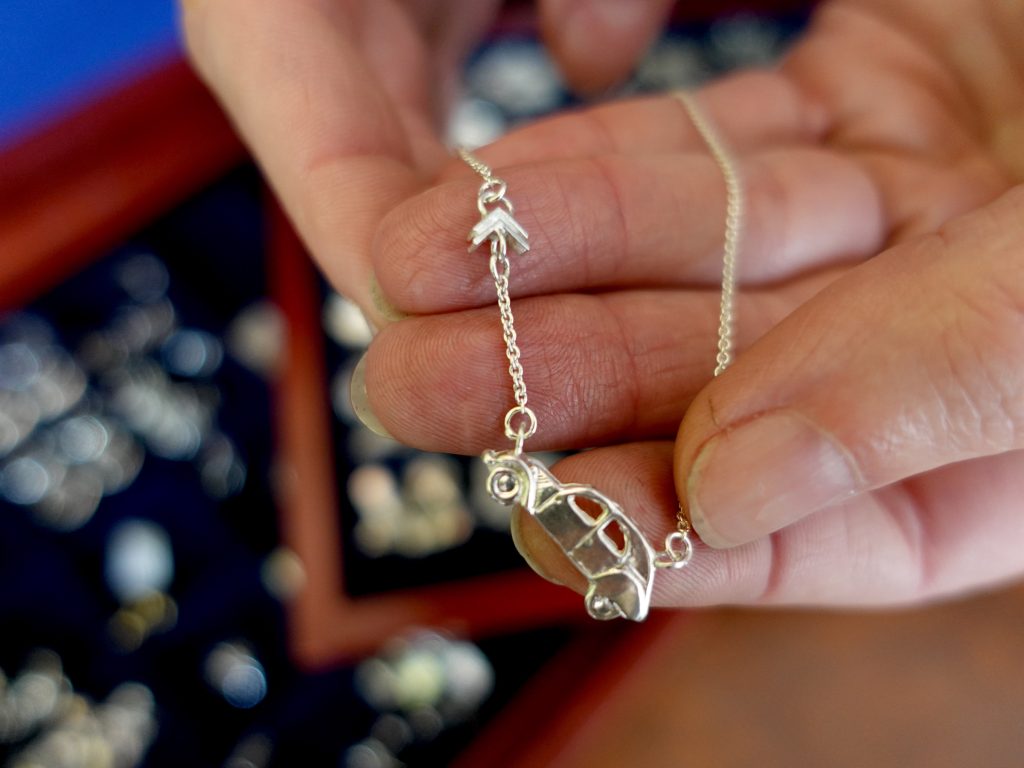
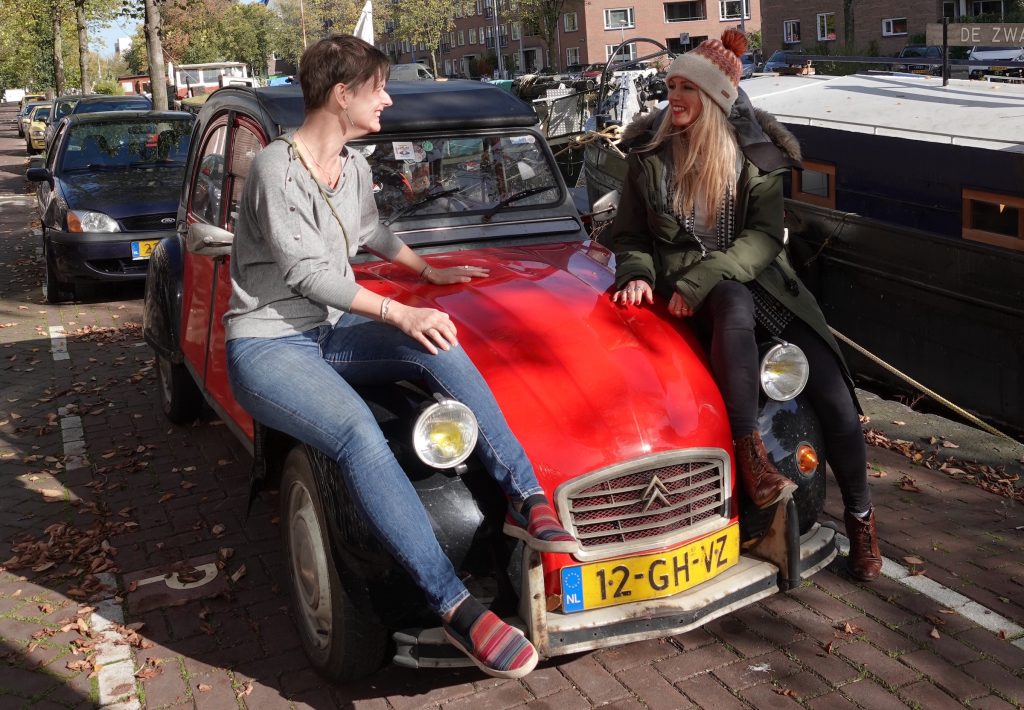
“I always said I’m married to my car,” laughs Wendy, pausing her inspection of a Lilliputian-sized Citroën DS, to allow me a closer look at the 8mm solid gold ring on her finger. Engraved with the Guv’s tyre tread, the idea for the design, which has become one of the most coveted in her collection, was born when a friend going through a divorce asked her to repurpose his wedding band. “Jewellery is an emotional thing, you feel it, you are drawn to it and I always think ‘wow’ when someone wants to wear my work.” The rings, which bear the distinctive pattern Michelin used for all Citroën Type A tyres, are “hefty” by nature and built to last. “I work on my own car and I want to dive into the engine bay wearing things that can handle that,” she says, going against the mechanic’s rule of thumb to remove trinkets when tinkering with cars.
To sell her pieces – which range from 1:87 or 1:43 toy size scale models of the Renault 5 Turbo, Jaguar E-Type and Porsche 356 (many of which have moving parts and some of which can be fully deconstructed “like a sort of puzzle”) to dinkier vintage vehicle inspired tie pins, espresso spoons, pendants, bracelet charms and earrings – Wendy runs an online store, but it’s when she takes her business, Truly Precious Vehicle Jewellery, on the road to car shows, that she gets a true sense of how her pieces cast a spell on kindred vintage car lovers. “I pack my whole shop into a small trailer, attach it to the 2CV and off I go,” she says. “The anticipation if I will sell or not is hard, but the people are so lovely, even if they just come to see me for a chat.”
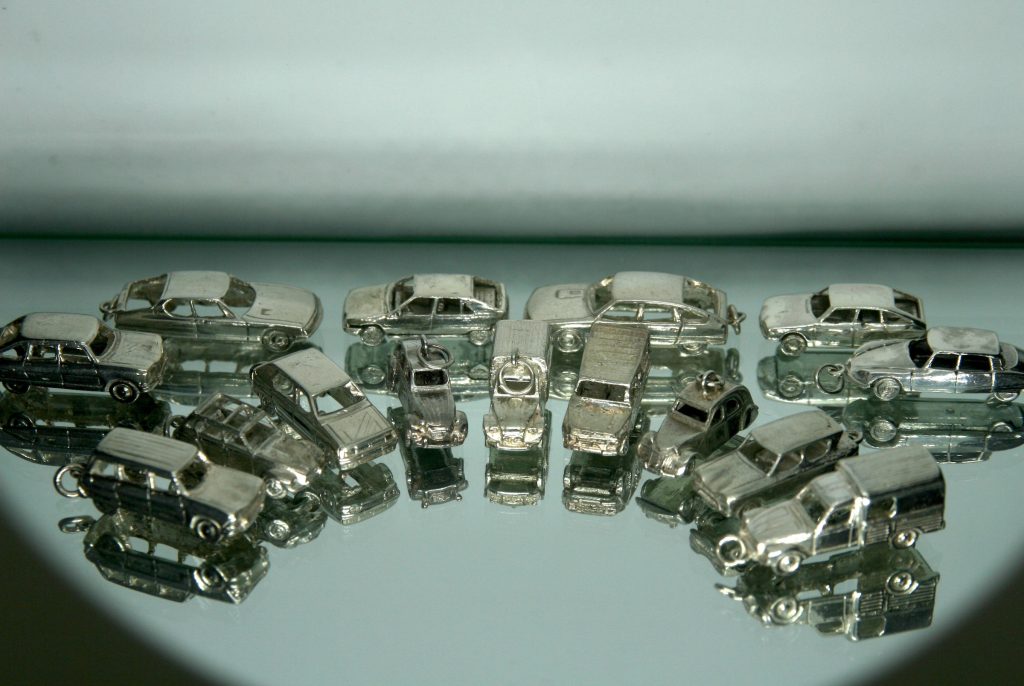
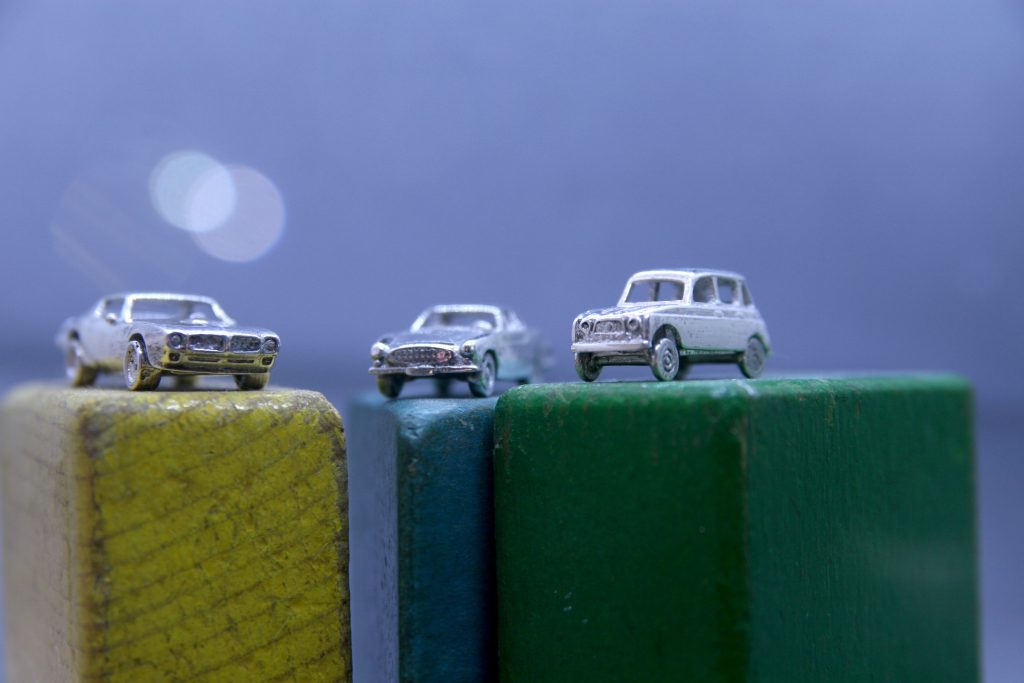
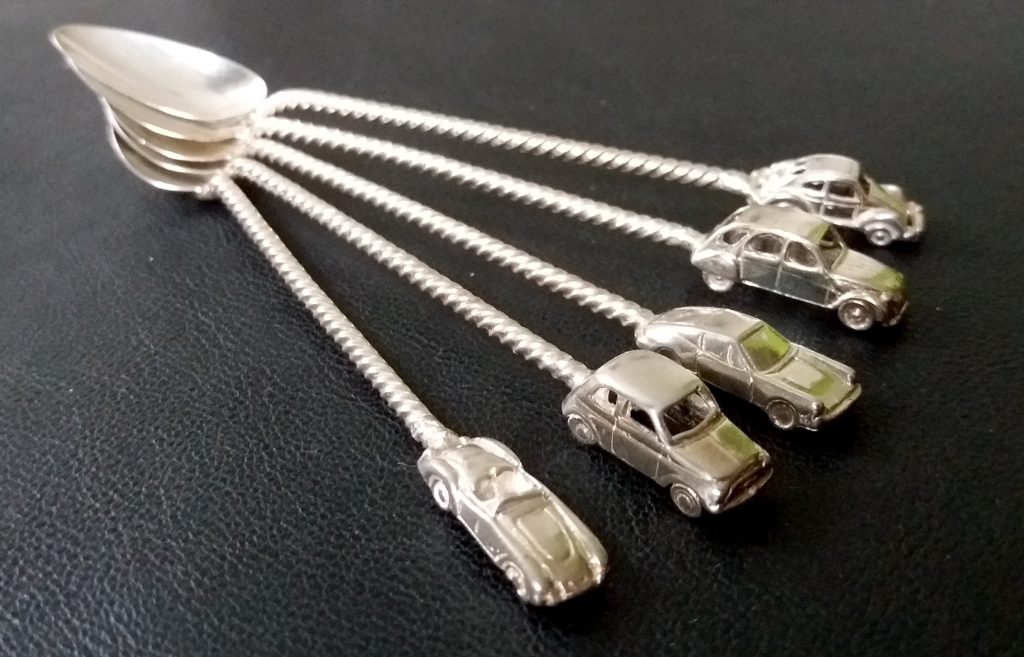
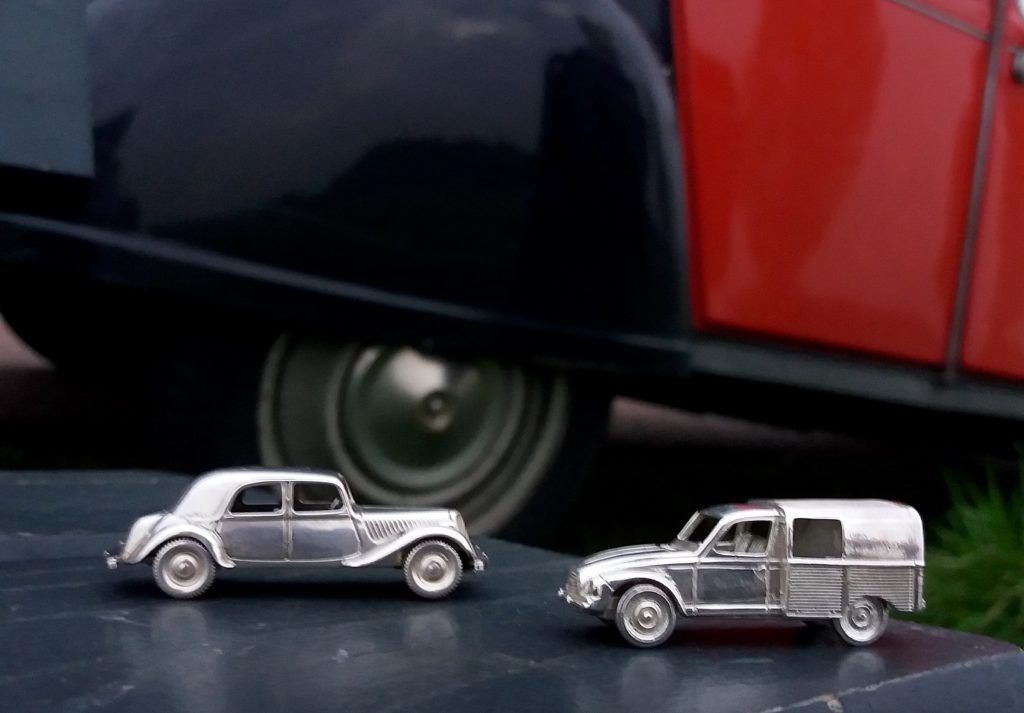
With such a varied collection of pieces – “I probably give people too much choice,” she confesses – the processes employed to craft them are diverse. The little cars, for example, “that have taken over my life”, are made using an ancient technique called lost-wax casting, and start their life as 3D-printed models that Wendy sources online. She then uses them to form wax replicas (an incredibly fiddly process that requires patience, a steady hand and a heat probe) that are cast in gypsum and filled with molten metal.
By nature, this traditional method doesn’t always deliver perfect results, which Wendy reveals by showing me a tiny Topolino that came out with only half a roofline and holes in its doors. “The caster I use has the expertise, but can’t control the process, it’s just how the metal behaves, and I’m OK with that because I can fill it all in with silver solder,” reassures Wendy. “The trickiest job is always the job that’s on the bench right now,” she says, refocusing her attention on the dinky DS, a bespoke commission. “This has lots of opening parts, including the hood and the rear, and you see the steering wheel is not yet in the right position, it’s moving, but I’ll get there, I break through my own boundaries constantly.”
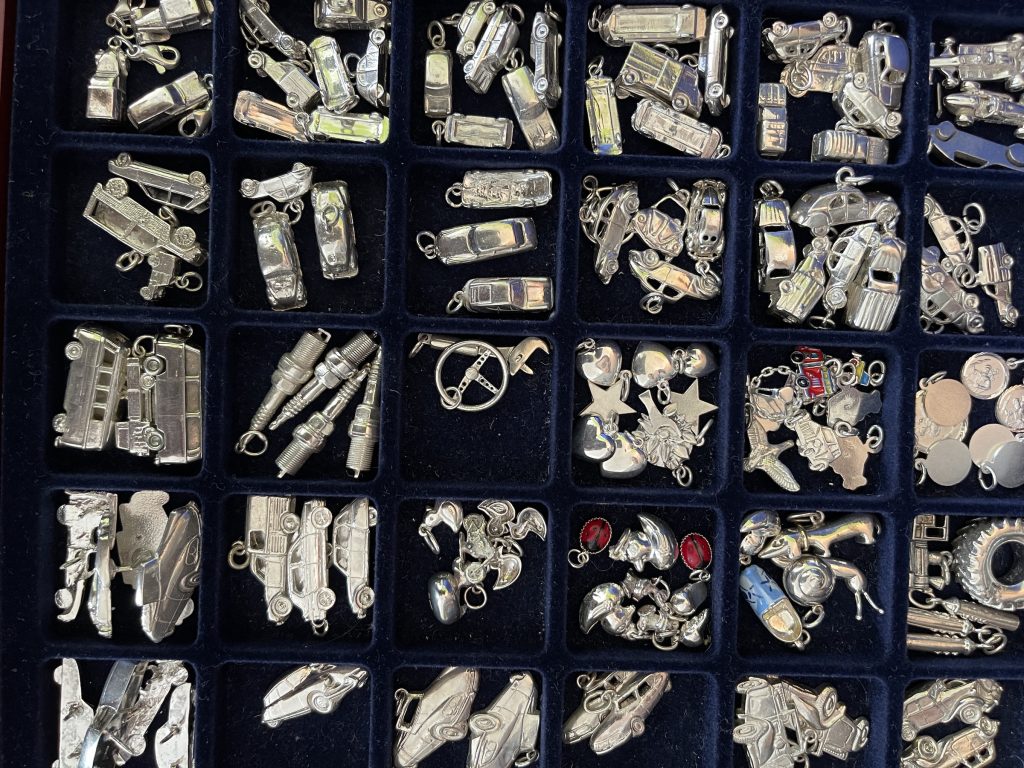
Is her range guided by what other people want? “No, it’s driven by what I want. It started with Citroëns, including the odd types like the Dyane and Acadiane, but I appreciate all old cars. I prefer classics to moderns, and I’ll not make it if someone asks me for something like a 2020 Mercedes SLK.” Whatever your automotive persuasion, with so much skill and attention to detail involved in their manufacture, it’s impossible not to delight at the sight of a slender bookmark that’s topped with a silver 1:220 scale 2CV measuring less than a centimetre, or its 1:43 scale, 8.6cm long, deconstructable sibling that has been oxidised to emphasise the shape of its lines. These are keep-forever items.
Noting that Wendy has taken a particular shine to working with second-hand antique silver, “a reflective material that takes on the colour of the environment it’s in”, it’s also a conscious choice that means her pieces are available to “people that love their classic car, or any classic car” at a more affordable price. A pair of stud earrings start at £25.00, keyrings from £14, and miniature cars from around £60. Working the same designs in gold or platinum could multiply their value by tenfold, and less precious metals are less malleable. “I’m not about making money,” explains Wendy, who draws her main income from appraising antique jewellery. “I have a job to pay the bills and provide me with security, but anything that’s left over I pour straight into this. In each piece I am putting a part of myself out there and I found it very hard to put a price on that, perhaps I should charge more, but I want people to buy my cars, I want to see that joy.”
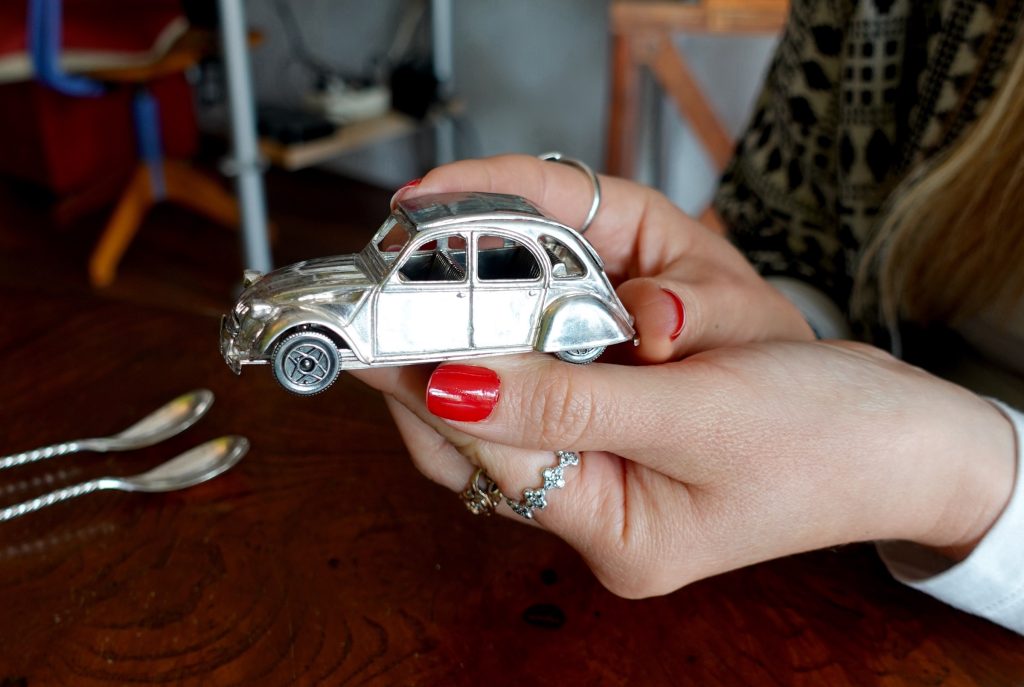
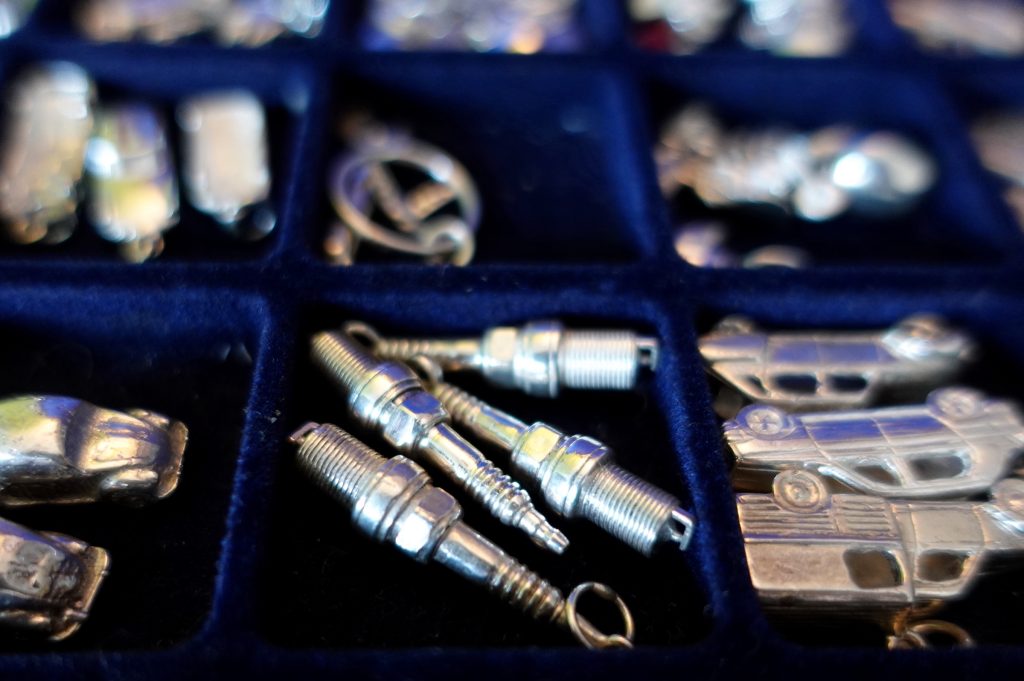
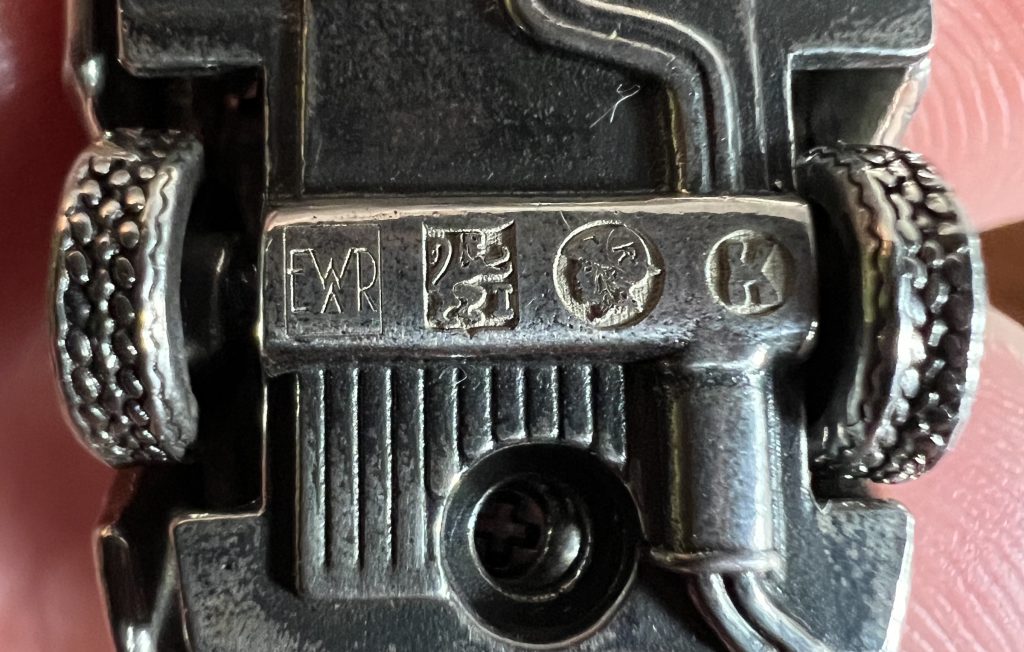
Hand-finished and hallmarked with her initials, EWR, with the addition of a single chevron beneath the W as a nod to Citroën, the appeal of Wendy’s precious metal creations also lies in their sustainable credentials; from base material to the packaging they are presented and shipped in, they are as kind to the environment as is possible. “Almost everything you see here is recycled,” she says, gesturing towards reclaimed timber shelving and the containers filled with old precious metal upon them. “It’s important to me, I’m a big advocate of vintage and working with vintage, and it’s why I feel strongly about driving an old car, they’re not bad; let’s reuse more things please! We are keepers of it all for the next generation.” Frustratingly, for Amsterdammers who wish to acquire a parking permit for a newly purchased old timer vehicle, their time has run out. “They’re not banned from the streets but they’re phasing them out.”
Keeping to normal working hours at her one-metre-by-one-metre workbench in the loft is not an aspiration for Wendy. “I get my best work done at night. As soon as I’m in the flow I tend to keep going, sometimes until two or three in the morning.” Outside, the day is beginning to fade, and I suspect that once I’m gone Wendy will work by lamp light as moonlight pours in through the sky light above.
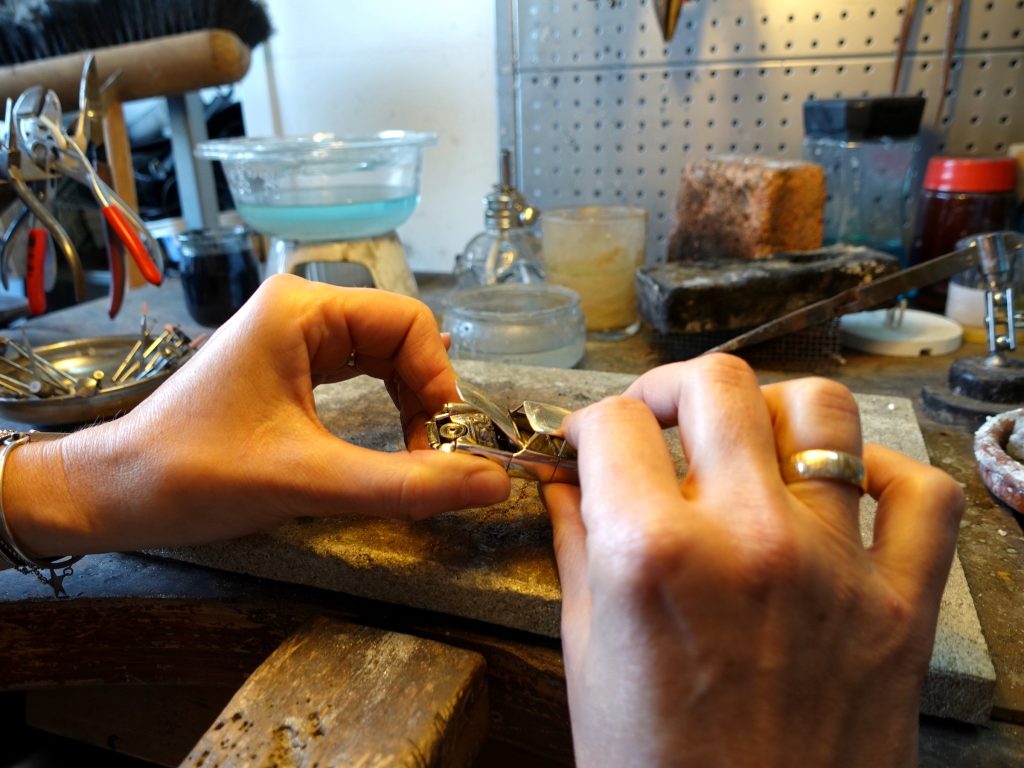
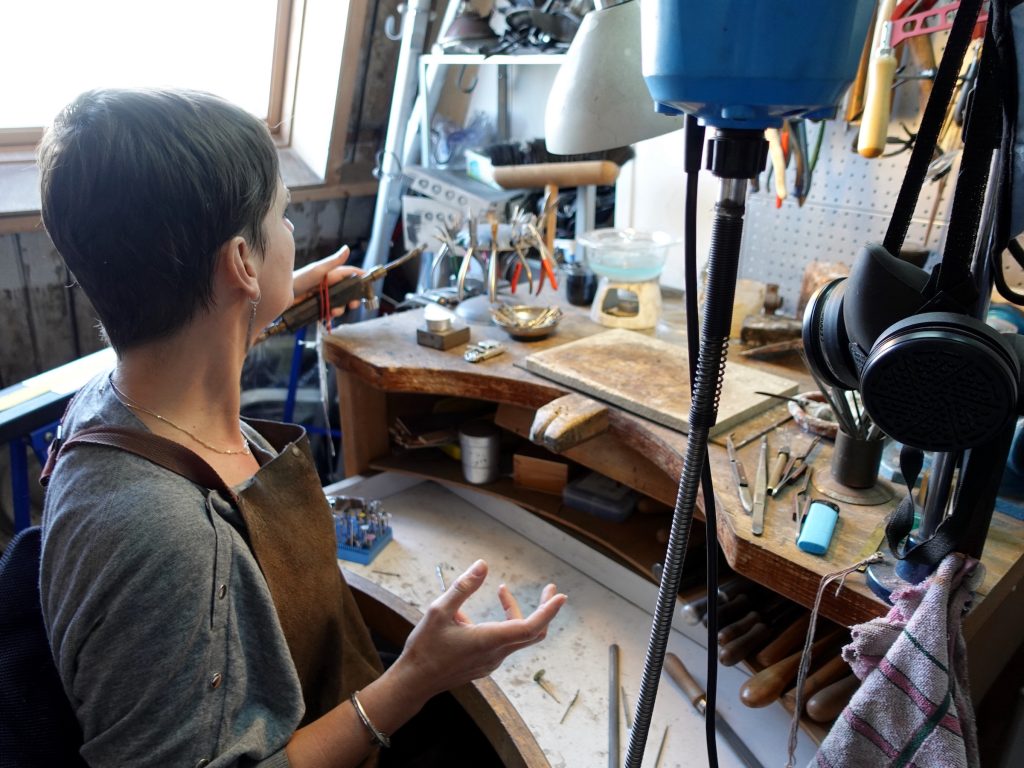
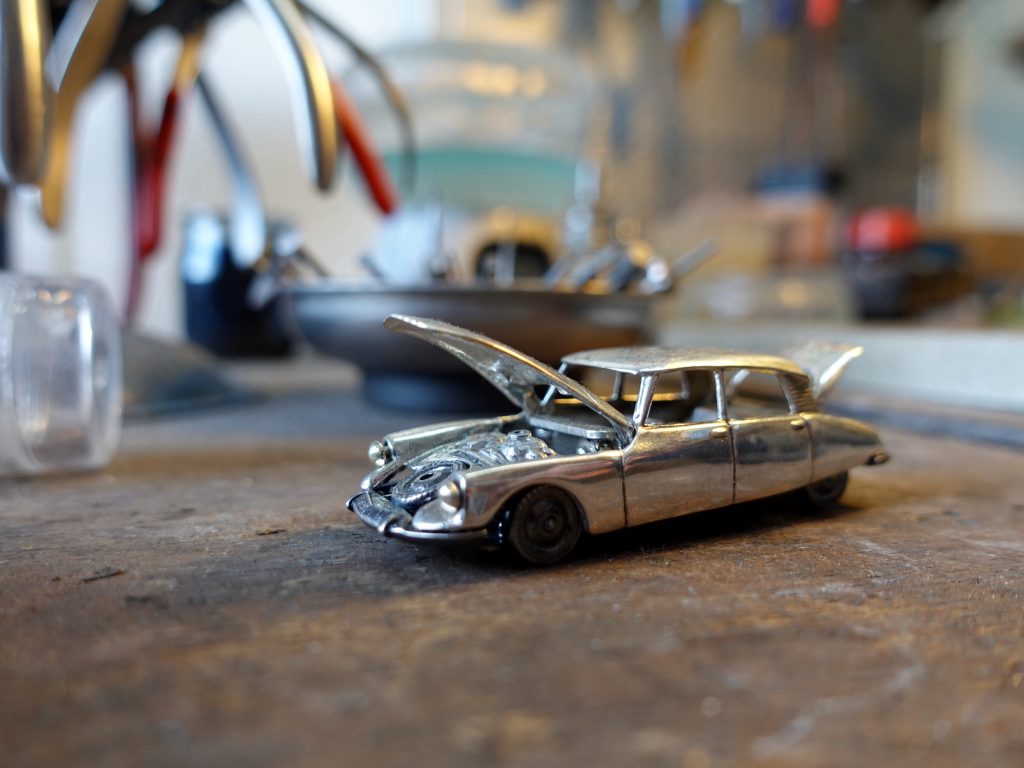
With a leather apron tied around her waist for protection should anything hot or harmful fall into her lap, she sets about warming the body of a 1:220 scale Land Rover which is held in position by her “third hand”, a manoeuvrable pair of tweezers on a weighted base. “I can carelessly heat up the whole car to attach the eyelet when it’s made of silver, but if it were gold I’d have to be very careful and more precise because the switchover point of the metal is much quicker, and platinum is even trickier to work with.”
Theoretically, it’s this necessity for precision that qualifies trained jewellers to take on a more lucrative side hustle in dental work. The tools, Wendy tells me, are similar too, but the temptation hasn’t gotten the better of her, because it’s here, in this humble attic, that she finds true happiness combining her practice and her passion by crafting tiny automotive treasures.
Read more
Hard Craft: Fine tuning with The Vintage Wireless Company
Hard Craft: For 40 years, Tameo Kits has made F1 in miniature
Atelier for the alternative: How visionary metalwork artist Rae Ripple has made her name cutting up cars

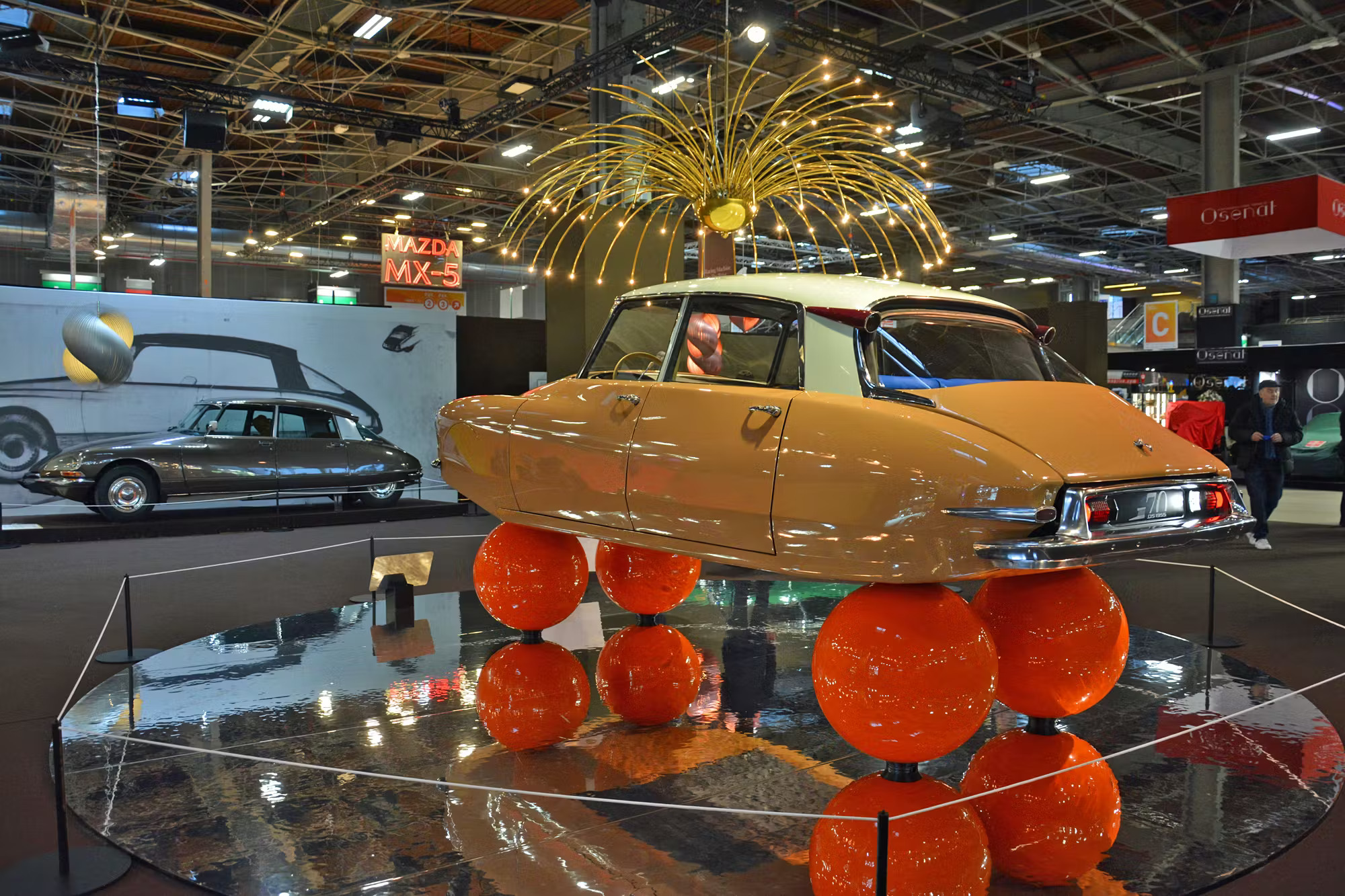
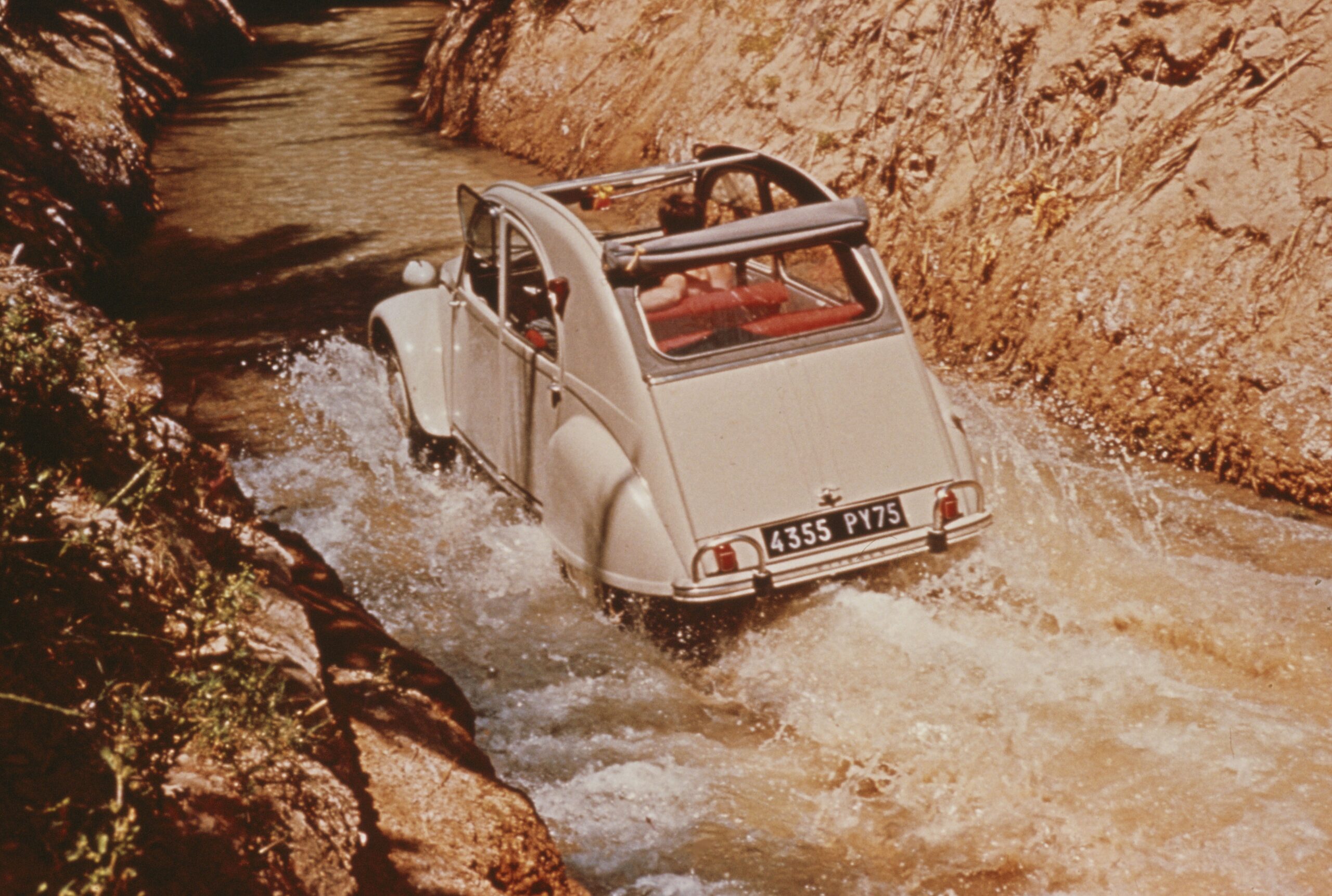








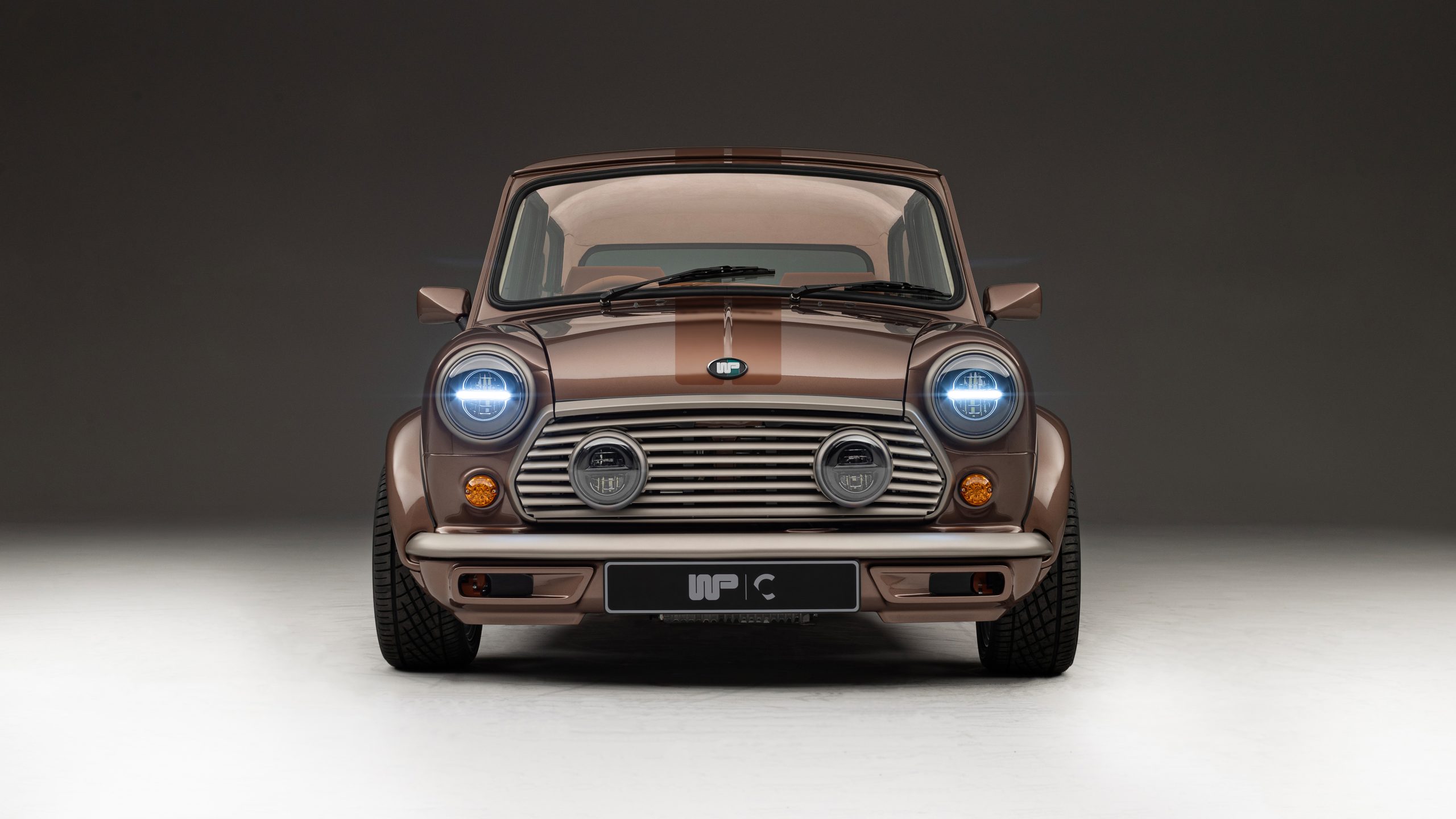
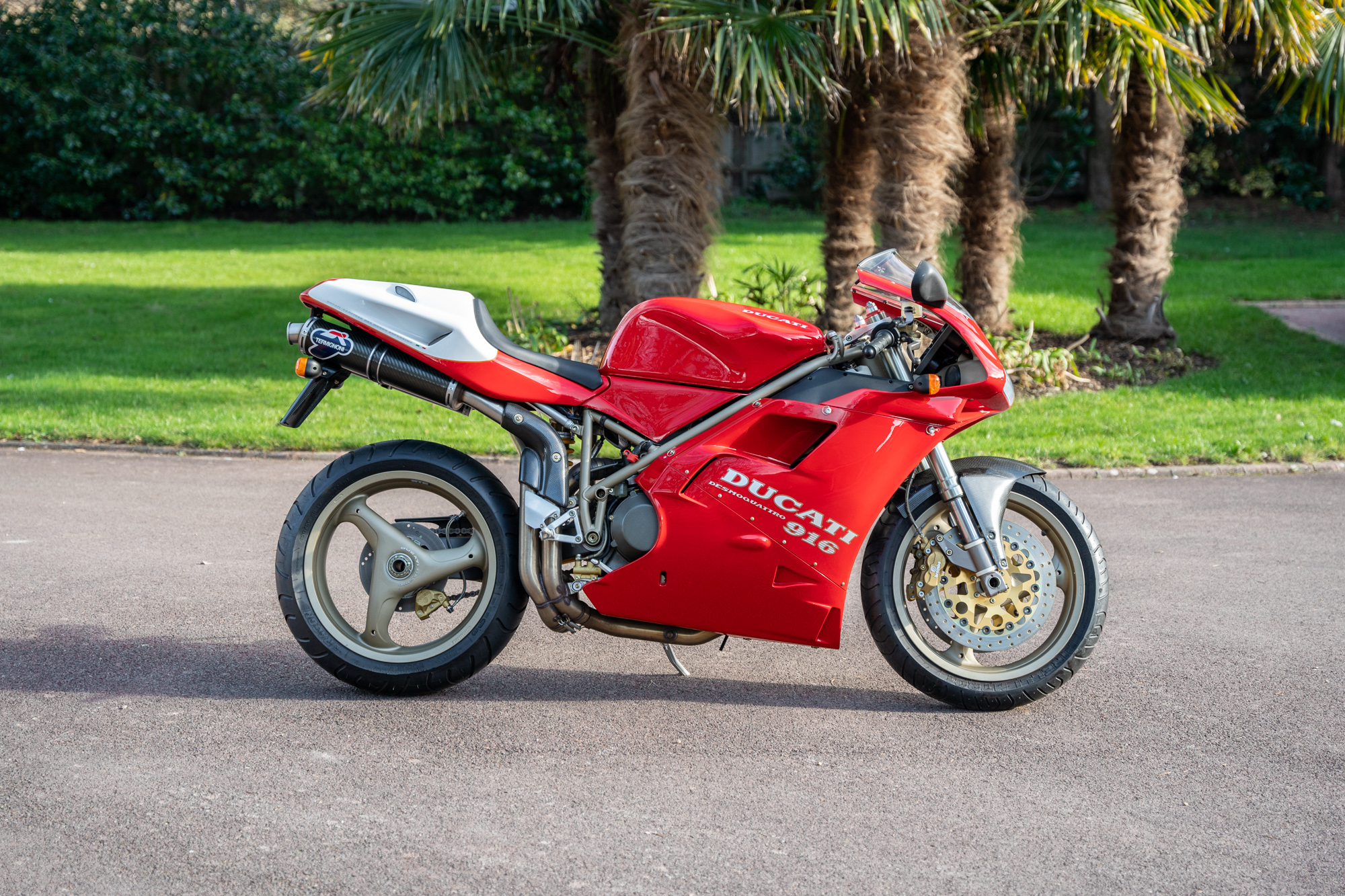
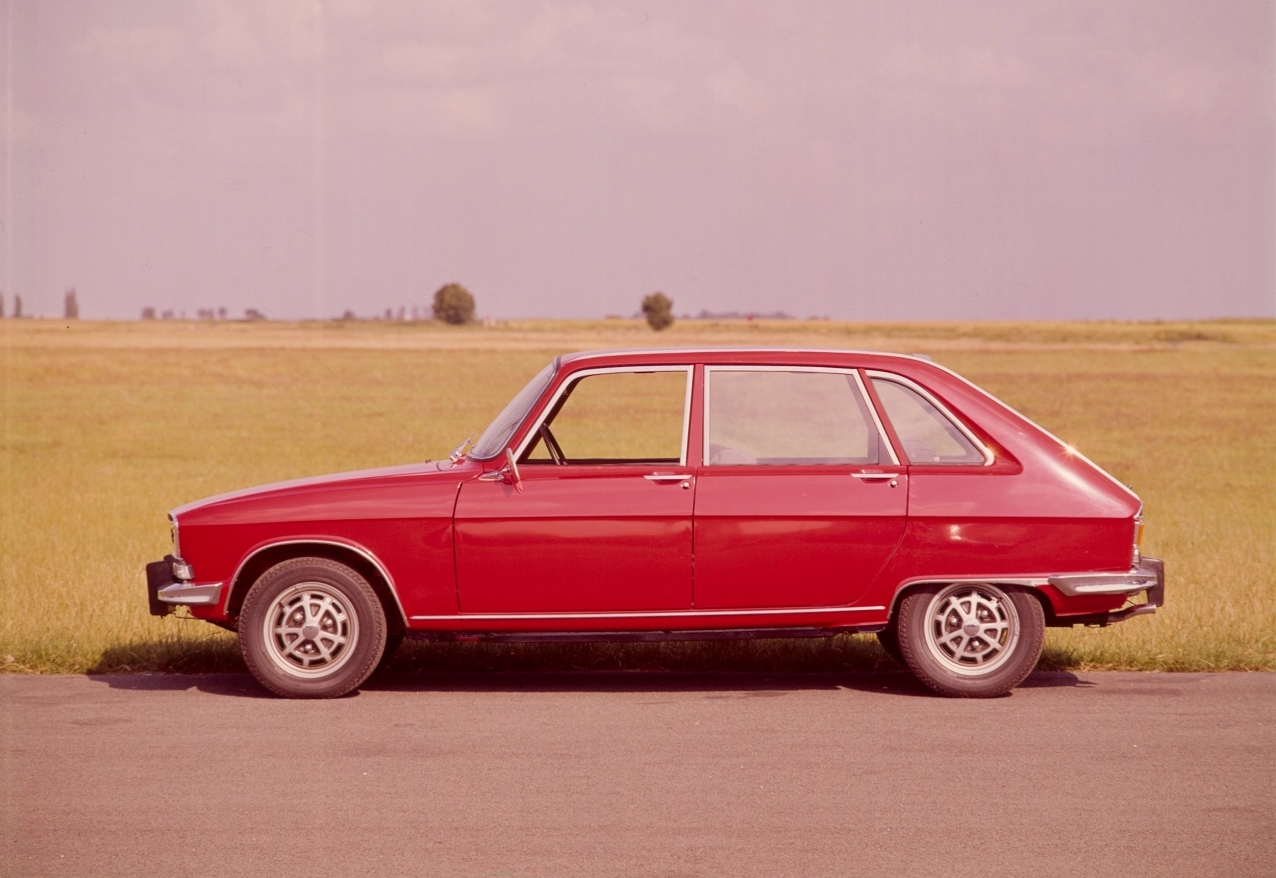
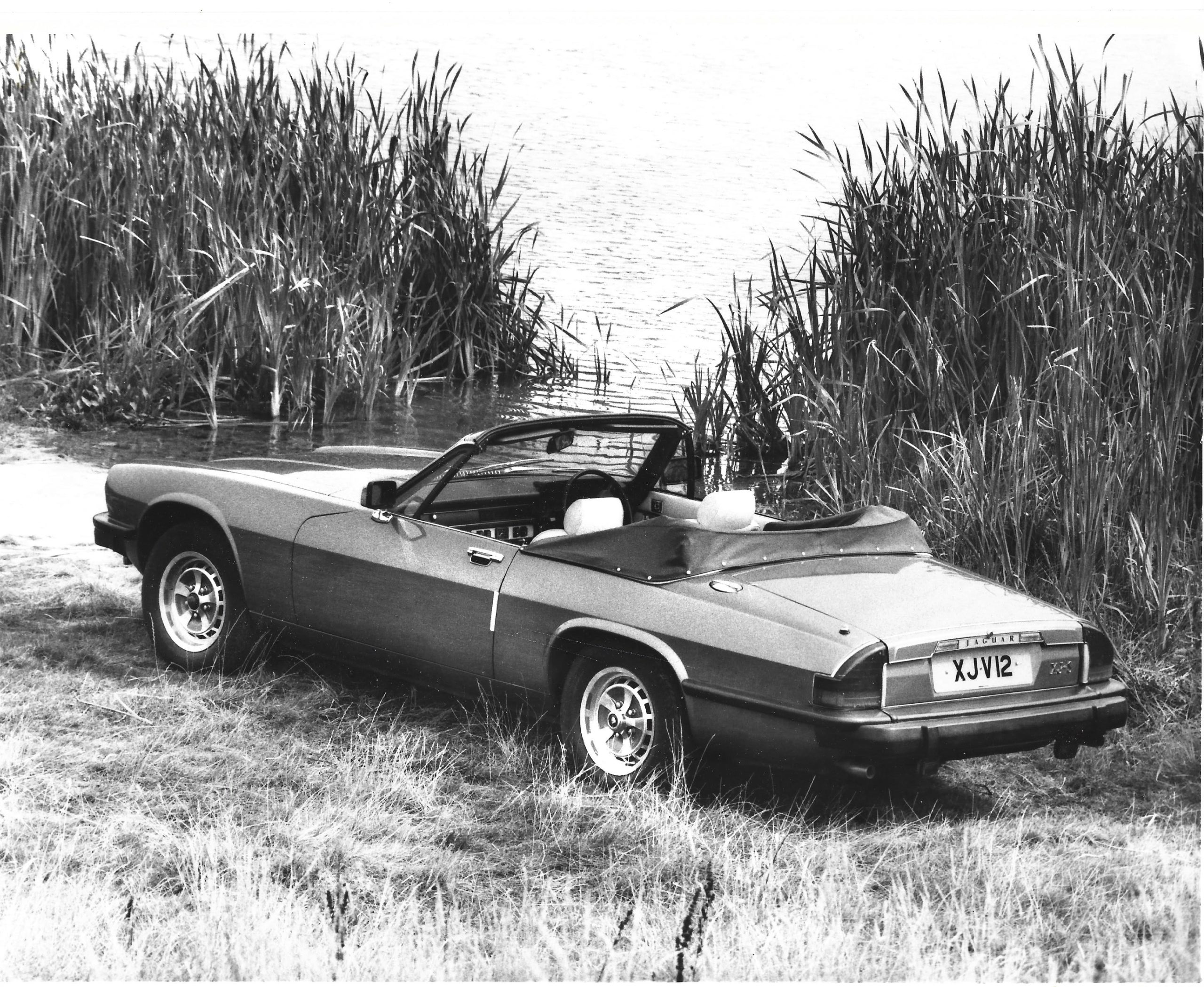
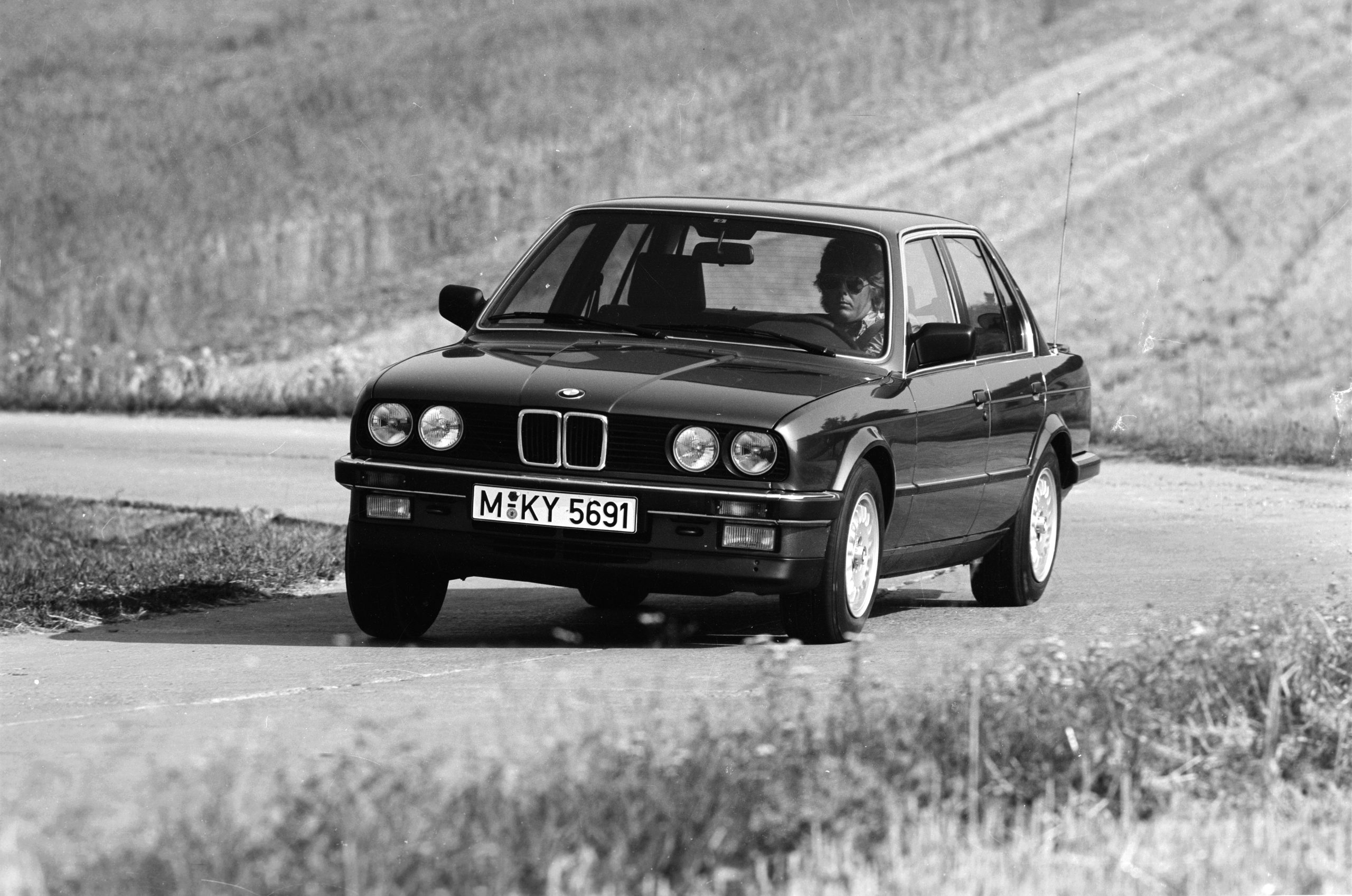
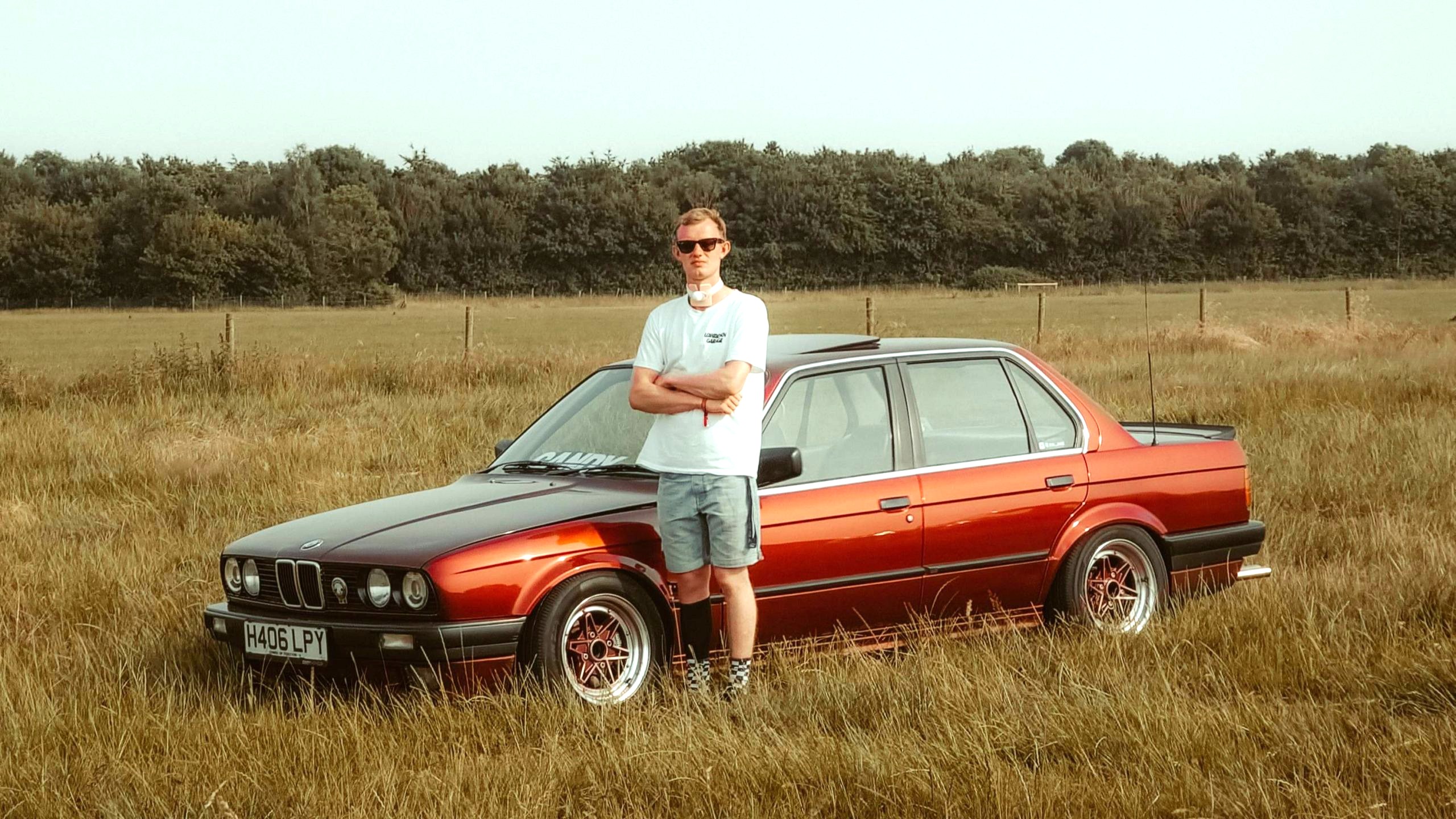
Way to go, misses W.
Has been a long time since the GUV/2CV-creation.
But happy to see you’re still going strong.